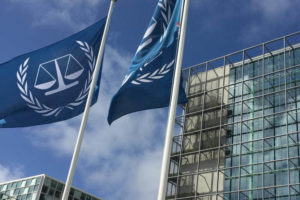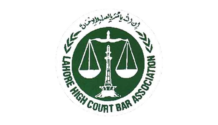Geneva (Switzerland): The International Commission of Jurists (icj) issued this year in July a Briefing Paper titled: Violations of the Right to Freedom of Religion or Belief in Pakistan.
The ICJ introduces itself as “Composed of 60 eminent judges and lawyers from all regions of the world, the International Commission of Jurists (ICJ) promotes and protects human rights through the Rule of Law, by using its unique legal expertise to develop and strengthen national and international justice systems. Established in 1952 and active on the five continents, the ICJ aims to ensure the progressive development and effective implementation of international human right and international humanitarian law; secure the realization of civil, cultural, economic, political and social rights, safeguard the separation of powers; and guarantee the independence of the judiciary and legal profession.”
The Paper is copyrighted and issued from ICJ headquarters Geneva 1, Switzerland. The ICJ has produced this briefing as its contribution as a member of The Freedom of Religion or Belief Leadership Network (ForBLN). It is available on www.icj.org
The paper deals with three main topics; of these we produce below extracts from its sub-section on ‘The Rights of Ahmadis’:
The Rights of Ahmadis
The Ahmadiyya movement was founded in the late nineteenth century by Mirza Ghulam Ahmad. Ahmadis identify as Muslims, but certain orthodox Muslims regard them as heretics because of some of their beliefs, including the sanctity they attach to Mirza Ghulam Ahmad.
…
Criminalization of religious practice
In 1974, during Prime Minister Zulfiqar Ali Bhutto’s first term in office, as mentioned above, the Parliament amended the Constitution of Pakistan, 1973, to declare that any person
who does not believe in the absolute and unqualified finality of The Prophethood of Muhammad (Peace be upon him), the last of the Prophets or claims to be a Prophet, in any sense of the word or of any description whatsoever, after Muhammad (Peace be upon him), or recognizes such a claimant as a Prophet or religious reformer, is not a Muslim for the purposes of the Constitution or law. 76
Pursuant to the second Constitutional amendment, Ahmadis were specifically labeled as a non-Muslim religious minority community.
As discussed earlier in the section above on the “blasphemy laws”, General Zia-ul-Haq made a number of changes to the Pakistan Penal Code in furtherance of an “Islamization” agenda. On 26 April 1984, General Zia-ul-Haq promulgated Ordinance XX of 1984, which introduced sections 298-B and 298-C to the PPC and made it a criminal offence for Ahmadis to call themselves Muslims, use terminology associated with the Prophet Muhammad, use Muslim practices in worship, or propagate their faith. In essence, these criminal provisions make any form of public practice of religion by Ahmadis a crime.
Provisions related to Ahmadis in Pakistan Penal Code
S. 298-B and S. 298-C: …
The role of the courts
In a 1993 case, Zaheeruddin v. the State, 78 the Supreme Court upheld the constitutional validity of these laws. The Court decided that minority Ahmadi Muslims are not Muslims because their beliefs and theological doctrines are at variance with the beliefs of the majority of Muslims. This made Ahmadis imposters, who were deceptively “posing” as Muslim. The Supreme Court analogized “posing” as Muslims with infringing trademarks, and relied on laws and jurisprudence relating to fraudulent trade practices to hold that the State had a legitimate interest in protecting “real” Muslims from such “deception”.
…
The Supreme Court’s judgment also appeared to condone violence against those alleged to “blaspheme” against the Prophet Muhammad, including Ahmadis:
It is the cardinal faith of every Muslim to believe in every Prophet and praise him. Therefore, if anything is said against the Prophet, it will injure the feelings of a Muslim and may even incite him to the breach of peace, depending on the intensity of the attack…
After reproducing some of the teachings of Mirza Ghulam Ahmad, the Court added:
Can then anyone blame a Muslim if he loses control of himself on hearing, reading or seeing such blasphemous material as has been produced by Mirza Sahib?
This judgment was a disavowal of the human rights of minority Ahmadi Muslims in Pakistan. It provided legitimacy to their legal as well as societal persecution, invalidated their right to religious belief in its entirety, and left them with no forum for redress.
…
Inconsistency with international human rights law
The constitutional provision declaring Ahmadis non-Muslim, as well as the criminalization of any public practice of their religious beliefs are wholly inconsistent with the right to freedom of religion or belief. These criminal provisions and their enforcement violate the right of Ahmadis to freedom to have or to adopt a religion or belief of their choice; the freedom to manifest their religion or belief in worship, observance, practice and teaching, either individually or in community with others, in public or private; as well as the freedom not to disclose their religion or belief. They also contravene the right of Ahmadis not to be discriminated against on prohibited grounds and their right to equality before the law and equal protection of the law without discrimination.
A number of UN human rights mechanisms have raised concern about these laws. Soon after they were enacted, the then United Nations Sub-Commission on the Prevention of Discrimination and Protection of Minorities expressed “grave concern” at the promulgation of Ordinance XX, and found that it openly violated the right to liberty and security of Ahmadis; the right to freedom from arbitrary arrest and detention; the right to freedom of thought, expression, conscience and religion; the right of religious minorities to profess and practise their own religion, and the right to an effective legal remedy. The Sub-Commission expressly asked the Government of Pakistan to “repeal Ordinance XX and to restore the human rights and fundamental freedoms of all persons in its jurisdiction.”
Similarly, the UN Special Rapporteur on freedom of religion and belief, following a visit to Pakistan in 1995, found that law “applied specifically to the Ahmadi minority is particularly questionable and in some respects frankly unwarranted.”
Violence and discrimination
Those provisions of the Constitution and the Penal Code that violate the right of Ahmadi Muslims to freedom of religion or belief and discriminate against them also contribute to acts of violence, hostility and other discrimination against them by non-State actors. Ahmadi “places of worship”, which, by law, minority Ahmadi Muslims are prohibited from calling mosques, are routinely targeted by violent mobs, and Ahmadis are assaulted and even killed only because of their faith. The police have often been complicit in harassment of Ahmadis, and have brought fabricated charges against Ahmadis or have not intervened to stop anti-Ahmadi violence. The Government’s failure to address the religious persecution of minority Ahmadi Muslims has further facilitated violence against them in the name of religion.
Pakistan’s election laws also effectively exclude Ahmadis from voting. To register to vote, minority Ahmadi Muslims must either renounce their faith or agree to be on a separate electoral list and accept their status as non-Muslim. Because many Ahmadis refuse to do so, they are disenfranchised. Furthermore, all Pakistani Muslim citizens applying for passports are obliged to sign a declaration explicitly stating that they consider the founder of the Ahmadi community an “imposter”, and consider Ahmadis to be non-Muslims.
While the Constitution labels Ahmadis as non-Muslims, it recognizes their religious minority status. However, certain religious groups — as well as Members of Parliament and Government officials — argue that Ahmadis are not a “religious minority”, as they do not identify as such. In 2020, for example, the Government constituted a Commission on Minorities to safeguard the right of religious minority communities. However, it decided to exclude Ahmadis from membership of the Commission. The Information Minister defended this decision by arguing Ahmadis do not “fall in the definition of minorities.”
UN human rights experts have expressed concern about discrimination and violence against Ahmadis on multiple occasions. In 2018, for example, the Special Rapporteur on freedom of religion or belief, the Special Rapporteur on Minority Issues, and the Special Rapporteur on extrajudicial, summary or arbitrary executions called on Pakistan to “repeal discriminatory provisions in its electoral law which is leading to members of the Ahmadiyya minority being persecuted and targeted in violent attacks.”
The State, therefore, is responsible not only for directly persecuting Ahmadis and denying their right to freedom of religion or belief, it has also failed in its obligation to protect their human rights, which requires it to take measures to protect individuals and groups against human rights abuses by non-State actors.
Furthermore, as noted above, under international human rights law, the principle of non-discrimination applies and is integral to the enjoyment of all human rights, whether civil, cultural, economic, political or social. States, therefore, have the duty to refrain from discriminating against individuals or groups of individuals because of their religion or belief, as well as the obligation to take necessary measures to prevent discrimination by non-State actors. Successive Pakistani Governments have failed in this regard on both counts.
Recommendations
• Repeal provisions of the Constitution of Pakistan, 1973, and the Pakistan Penal Code that declare Ahmadis non-Muslim and criminalize the practice of their religious beliefs;
• Ensure that the full range of human rights be guaranteed in law and in practice to minority Ahmadi Muslims; and
• Ensure prompt, independent and impartial investigations into attacks on Ahmadis, bring perpetrators to justice, ensure Ahmadis have access to justice and effective remedies for human rights violations.



